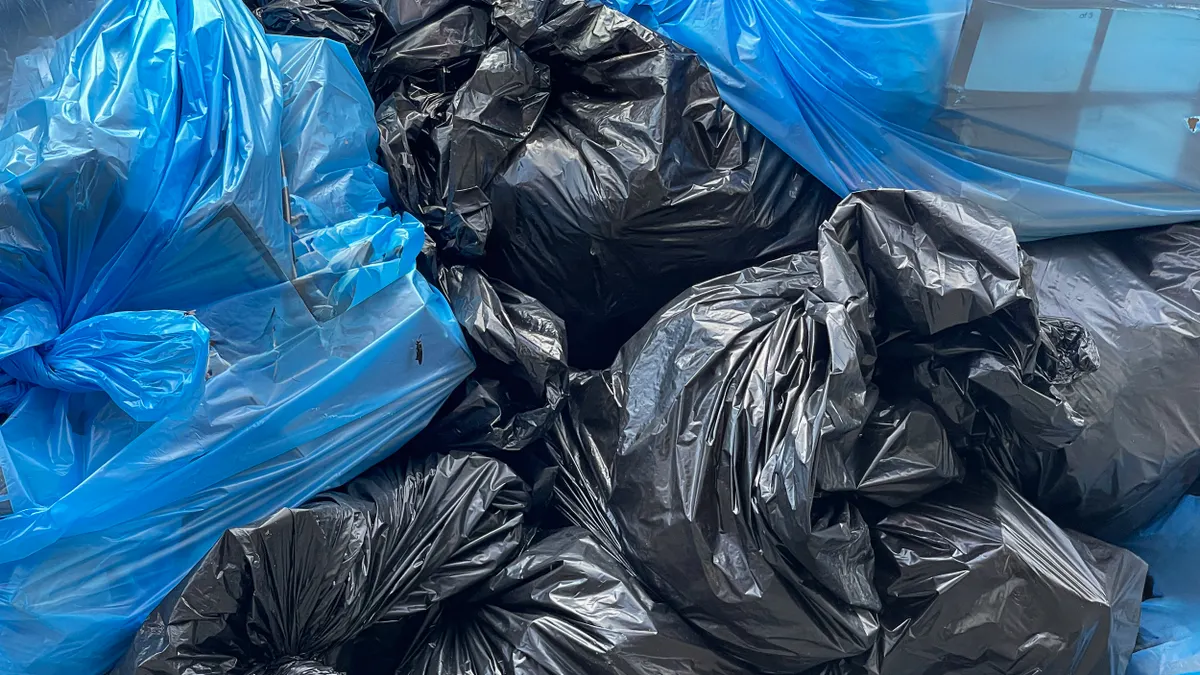The U.S. EPA has decided not to move forward with proposed rules that would have monitored specific contaminants in plastic feedstocks used to make fuel, including certain PFAS.
The EPA announced earlier this month it was withdrawing specific proposed Significant New Use Rules (SNUR) under the Toxic Substances Control Act. The proposal, first introduced in June 2023 under the Biden administration, would have more tightly monitored a list of 18 chemical “contaminants” potentially found in fuels derived from plastics. Those substances included per-and polyfluoralkyl substances, certain pesticides, dioxins, BPA and heavy metals like mercury.
The agency said it withdrew the proposal because the original TSCA order that prompted the SNUR rules was rescinded in December 2024 after the EPA said it received numerous comments encouraging the agency to “remand or modify” related TSCA sections.
The move is a win for the plastic industry, which has said the proposed rule created too much regulatory uncertainty and hurt investment and market development for plastics created from chemical recycling processes.
Yet some environmental groups see the withdrawal as a lost opportunity to regulate and monitor chemicals they say can cause health and environmental problems.
The new rules would have called for manufacturers to give the EPA 90 days of notice to study the “significant new use” of the 18 named substances, and determine any impacts they might have when present in chemical recycling processes such as pyrolysis.
The American Chemistry Council, which is active in advocating for industry-friendly chemical recycling regulations, applauded the agency’s decision to drop the proposal.
“Every time the EPA over the past few years proposed a rule, withdrew a rule, or even talked about a rule, we saw the market chill for new investment in this technology because they didn't really know if they were able to get the permits. It was getting in the way of the technology and stopping its core progress,” said Ross Eisenberg, president of ACC’s plastics division, during a Congressional hearing last week about chemical recycling’s potential economic impact.
Chemical recycling, also known as advanced or molecular recycling, is an umbrella term for a range of technologies that break down plastics to their molecular building blocks to be used for new products such as new plastics. Some of these processes can also be used to create fuel.
Most major recycling organizations, such as the Recycled Materials Association and The Recycling Partnership, have said using these technologies to turn plastic feedstock into fuel does not count as recycling.
The original SNUR proposal, created during the Biden administration, would have addressed chemicals in plastic-derived fuels, particularly fuels created through pyrolysis, a type of chemical recycling. Plastics industry groups said the SNURs could have negatively affected chemical recycling processes used primarily to make new plastics.
However, certain environmental groups said the original SNUR proposal didn’t go far enough to protect people from harmful chemicals potentially found in plastics used to create fuel and other products.
The Environmental Defense Fund, which generally supported the EPA’s SNUR proposal in 2023, had called for the EPA to widen the range of PFAS named in the proposal, saying the list of PFAS mentioned in the proposal was too narrow. EDF also advocated for the SNUR proposal to include an even wider range of other kinds of toxic chemicals the group said are commonly found in plastics.
Earthjustice, which also submitted comments to the EPA on the original SNUR proposal in 2023, said the proposal did little to address toxic chemicals that could affect the health of residents living near petroleum plants and other facilities that manufacture plastics.
Beyond the SNUR rules, some environmental groups such as Beyond Plastics have called for more research on the impact PFAS might play on human health and safety during chemical recycling processes. The group, which believes the chemical recycling industry has overstated the technologies’ effectiveness and has raised concerns about the technologies’ environmental impacts, has said “little information is available” on potential PFAS impacts on the technologies.
The EPA’s decision to drop the SNUR proposal follows several other recent regulatory announcements affecting the chemical recycling industry. Earlier in July, the EPA declined to carve out certain pyrolysis operations from an air emissions rule, which the plastics industry had requested in order to help reclassify pyrolysis under separate manufacturing standards.
ACC and other plastics groups have long advocated for federal regulations that classify chemical recycling as a manufacturing process instead of waste management, a move they say helps standardize permitting and lend more certainty to a growing industry. Yet some environmental groups say it would allow the industry to be regulated under less rigorous environmental standards.



















